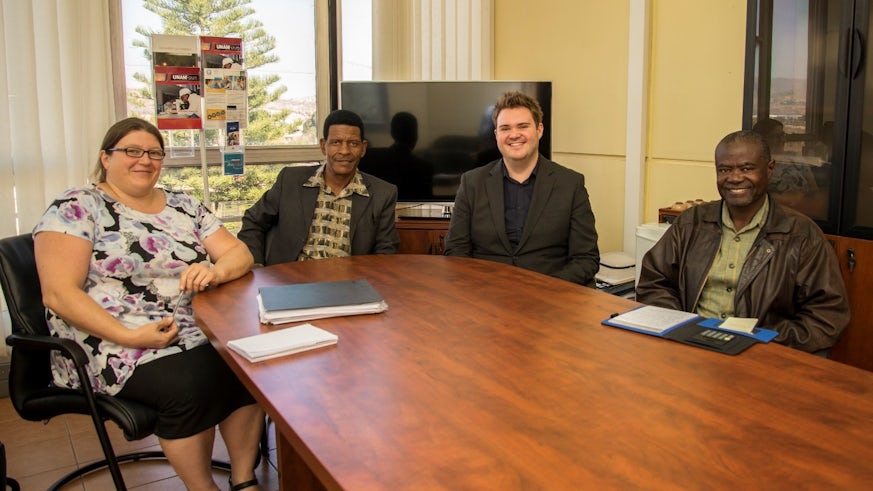Language insights on a trip to Namibia
18 September 2015

In this article, Dr Jonathan Morris from the School of Welsh shares his experiences of being part of the Phoenix Project’s recent trip to Namibia.
I visited the University of Namibia at the start of July in order to discuss a possible project on local languages. I work as a Coleg Cymraeg Cenedlaethol lecturer in linguistics and specialise in sociolinguistics and bilingualism. This means that I have an interest in how languages are produced by different groups of bilingual speakers, and how languages are used in various situations.
I have worked on bilingualism in western Europe in general, and on Welsh-English bilingualism in particular. It was therefore a completely new experience to travel 5245 miles to Namibia where over 20 local languages are spoken! In addition to this, English was chosen as the only official language in 1990 and, since then, the language has replaced Afrikaans in a number of fields such as education.
A lot of countries are multilingual officially but this does not mean that the population is multilingual. It was therefore a great surprise to see how normal multilingualism is in Windhoek. Many of the residents, as a result of the history of the country and migration to the capital, can speak a native African language, Afrikaans, English, and maybe German. I often heard people discussing work with colleagues in English, turning to Afrikaans at lunchtime, and greeting a friend from the same area in Oshiwambo or Otjiherero.
Despite this, a number of people are concerned about the future of the African languages. I spent the week in the company of academics from UNAM and representatives from various departments in the government and education system who work on these languages. They are concerned that a shift to English is happening in some areas as people see English as a prestigious language and as there are not enough resources to support the use of the African languages. A language shift was seen in parts of Wales, of course, and they were very interested to hear about the history of Welsh-English bilingualism and how the Welsh language is supported at the moment.
In the future, we will continue to work together to share experiences of promoting languages and to try to better understand the linguistic situation in Namibia. There are a number of arguments for promoting any minority or native language from a cultural perspective but, more importantly, we have to understand how negative attitudes towards some languages can lead to feelings of inferiority and a lack of confidence among their speakers.